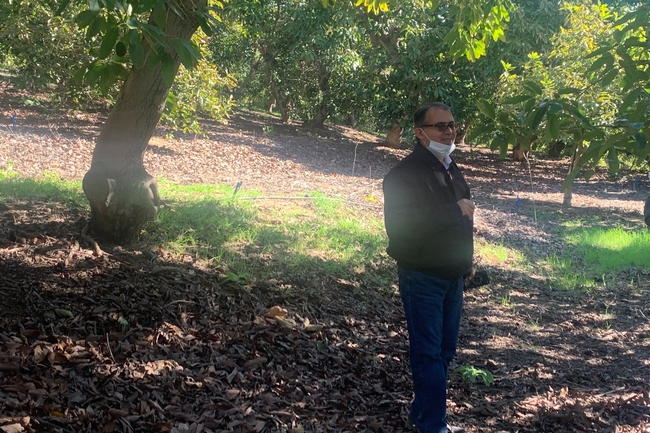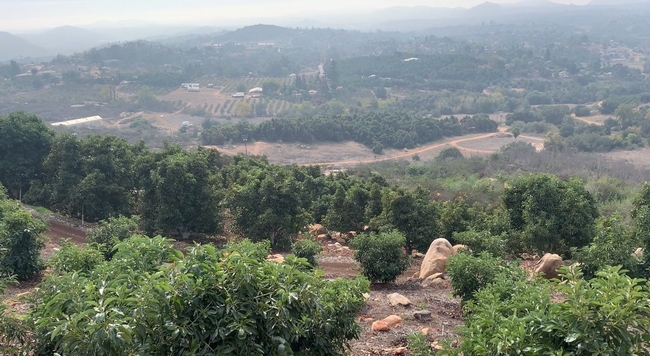Avocado growers to get irrigation tools, strategies from UC ANR’s Montazar
CDFA grant supports research to optimize water use for iconic California crop
California growers, who account for more than 90% of avocado production in the U.S., will soon be getting some help in weathering the extreme fluctuations of climate change.
Ali Montazar, a University of California Cooperative Extension irrigation and water management advisor, recently received a grant to develop tools and strategies that optimize growers' irrigation practices across Southern California – the state's avocado belt. California avocados are valued at more than $411 million, according to the National Agricultural Statistics Service.
“This region faces uncertain water supplies, mandatory reductions of water use, and the rising cost of water – while efficient use of irrigation water is one of the highest conservation priorities,” Montazar said. “Water is the most critically important input to avocado production.”
At the California Avocado Commission's suggestion, Orange County was added to the study to better capture the range of climates and cropping systems across the region, Montazar said.
He hopes to develop “crop coefficients” that avocado growers can use to determine the optimal irrigation for their crop based on a host of factors: soil type and salinity, canopy features, row orientation, slopes, soil and water management practices, and more.
“Growers are unclear on how much water the crop actually needs under those conditions,” Montazar said.
He will incorporate data from the actual water use in the experimental orchards – including information from the newest soil moisture and canopy temperature sensors – to help ensure growers do not under- or overwater their crops. Overirrigating contributes to a devastating disease, avocado root rot, caused by the plant pathogen Phytophthora cinnamomi.
Another component of the grant supports outreach in disseminating these resources and best practices to the broader agricultural community.
“Developing and adopting these tools and information may have a significant impact on water quality and quantity issues and bolster the economic sustainability of avocado production not only in the well-established production region of Southern California, but also in Kern and Tulare counties where new avocado plantings are growing,” Montazar said.
Preliminary findings and recommendations are expected at the end of 2022.



Posted by Tina Wolferd on July 19, 2023 at 9:46 AM